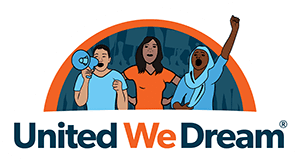1. Knowing the facts
- The United States is home to 11 million undocumented immigrants (Passel & Cohn, 2009).
- Approximately 19% of these undocumented immigrants are children – 2.1 million (Gonzales, 2011).
- All undocumented children have a legal right to obtain a free public K-12 education according to the U.S. Supreme Court ruling, Plyler v. Doe, in 1982. Unfortunately, this does not guarantee a college education (Fitz, Wolgin, & Garcia, 2012).
- Every academic year, 65,000 undocumented students graduate from high school in the United States. Currently, around 5%-10% of these 65,000 high school graduates move on to a higher education institution (Gonzales, 2009).
- Approximately, 19 states allow undocumented students to pay in- state tuition rates. View a national map at www.unitedwedream.org/deep
2. Understanding the experience
Undocumented students are often in the shadows; they are in hiding because of their immigration status. Undocumented students fear seeking resources because they fear repercussions that might come from disclosing their status. These students oftentimes lack access to resources such as financial services for their schooling and health. In addition, undocumented immigrants constantly fear deportation of themselves, a family, or community member (Gonzales et al., 2013). Additionally, most of these student’s families are in poverty, working precarious jobs to maintain the needs of their families. Because of the family’s low household income, undocumented youth often financially support their families by obtaining a job. These types of circumstances cause stress and anxiety which may make undocumented youth feel angry and hopeless, affecting their mental and emotional health, while attending school (Gonzales et al., 2013). Furthermore, undocumented students often feel shame and stigmatization within their schools. This stigma is caused by the legal exclusion they must encounter on a daily basis. Therefore, they hide their status from friends and partners, as well as potential mentors and advocates, affecting their academic, mental, emotional, and social success ((Gonzales, Suárez-Orozco, & Dedios-Sanguineti, 2013).
The support of professional staff within this space creates a welcoming environment for undocumented students so that they do not feel judged by their immigration status. Undocumented students need to feel welcomed and safe in order to connect with other undocumented immigrants and advocates; this also helps create a sense of community within their school. Collectively, undocumented students, with the support of professional staff can advocate for additional resources, build a support network, and discuss community issues (Richards & Bohorquez, 2015).
3. Continuing to learn, grow and advocate
- Understand that allyship is an action, not an identity
- Always center the lives and experiences of undocumented students
- Invite them to spaces to share their stories while compensating them for their time
- If unable to have the students attend, ask for explicit consent to share their story via a voice recording, video, in writing, art, etc.
- When working on resources or initiatives that directly impact undocumented students, it is crucial that undocumented students be part of the planning process of all programs, events, and trainings
- Include parents- we often forget about including parents, however they play a vital role for students
- You do not need to know everything- “The most frustrating thing is when your counselor has no clue what to do with an undocumented student.” The important part is to be open to searching and helping creating such resources
Make resources easily available and accessible – print and display them in public and open spaces - Create and/or lead students into spaces of empowerment, such as conferences, workshops, or groups directed towards changing vulnerability to power
- Make yourself visible- “Most of the times it takes a long time to find someone in school that is equipped with the information you need; even if someone does have it…we shouldn’t have to go wandering from office to office to find it.”
- You can make yourself visible through signs (“I am an unafraid educator with and for undocumented students”)
- Via a website-dedicate a page to undocumented students with a list of allies and their contact information
- Systematic change: assign people to work directly with undocumented students
- Don’t undervalue undocumented folks who, for whatever reasons, are unable to pursue a college education.
- Do your own research; know national, state, and local policies that affect the undocumented community. Don’t depend on someone who is undocumented to update you on legislation
- Know that immigration is highly racialized- ask yourself who has been “othered” throughout our history
- Analyze your migration history. For some, migration was a choice (colonialism, settlement) while for others it was forced (slavery). Others have been killed and displaced from their land, which we occupy today (Native Americans, Indigenous folks, genocide).
- Be mindful of the space you take. Being an advocate is not about you. It is about the students whom you’re advocating with and for. Let their lives and stories be heard – make space for student voices in all spaces.
- Use your voice to speak with and for undocumented students, challenge excluding and harmful systems and practices
- The issues that affect undocumented students go beyond classroom and institutional walls
- Immigration and education are issues that both affect undocumented students and therefore should both be advocated for within our schools
- Being an advocate is an ongoing journey and responsibility





